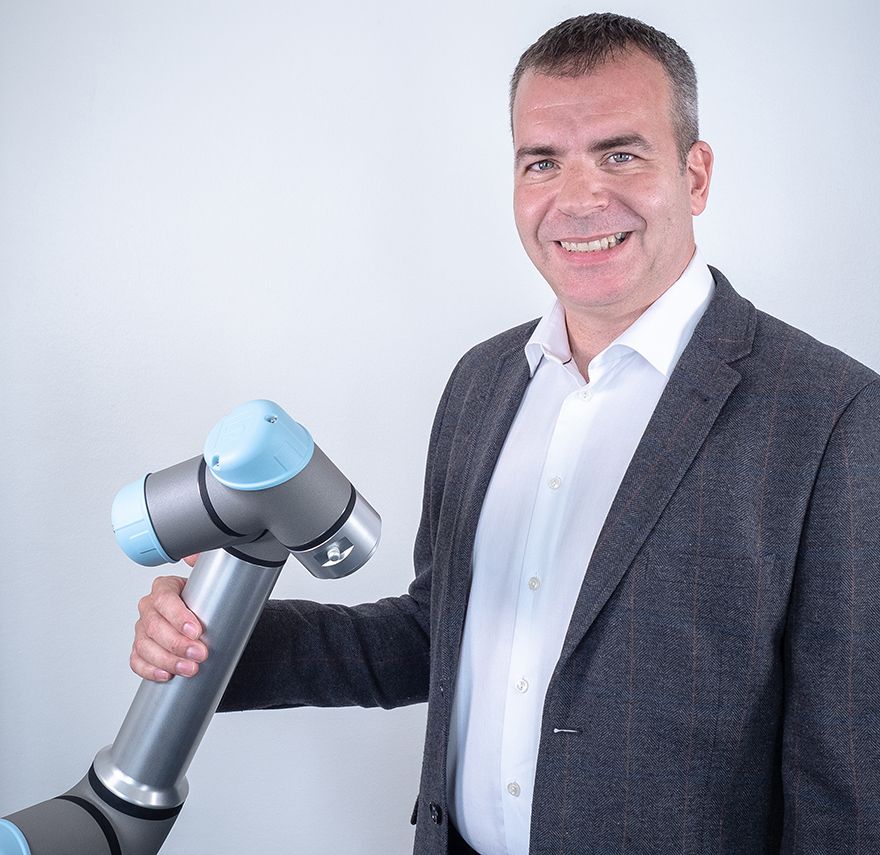
It is fair to say that the last few years has been one of the most disruptive periods of change for the UK manufacturing sector since the first industrial revolution of the late 18th century according to Mark Gray, Country Manager UK & Ireland at Denmark-based
Universal Robots. Factors such as Brexit, the pandemic and green initiatives including the impending 2030 petrol ban are already being felt across the manufacturing sector.
Research from specialist consultancy
Insider Pro illustrates the scale of the problem, as the company’s UK Manufacturing Barometer 2021 illustrates that the pandemic alone will impact the sales of small- and medium-size manufacturers by £21.5 billion over the course of 2021.
Mr Gray said: “Despite these seemingly adverse challenges, there is opportunity, but manufacturers must make appropriate changes to their operations to seize it. This process must begin with automation, as the technology will give manufacturers throughout the supply chain the agility and flexibility needed to navigate the uncertain times ahead. Automation is the key to turning this disruptive period into an opportunity to restart and revitalise UK manufacturing.
“Compared to other European nations the UK has been slow to adopt robotics, as shown by an illustrative 2020 report from the
International Federation of Robotics (IFR) which revealed that the UK has just 21,700 units installed, compared to 221,500 units in Germany, 74,400 in Italy and 42,000 in France.”
Untapped potentialHe added: “Regardless of the reasons behind this slow take up, this leaves the UK in a surprisingly unique position, as it means the country has a huge amount of untapped potential. A widespread drive to automate UK industry would immediately bring huge productivity and efficiency gains.”
“Since Brexit was finalised, many manufacturers have struggled without the flow of cheap labour from Europe, especially in sectors that have labour intensive manufacturing processes – such as metal-working. Travel restrictions imposed as a result of the pandemic have only exacerbated the problem and made it even less feasible to bring in manpower from abroad.
“The UK can look to nations such as Japan which have used automation to plug their own labour shortages. Japan has long struggled with an ageing workforce and declining population, but by innovating and pioneering robotics the country was able to offset its changing demographics and establish itself as a world-leader in automotive and electronics manufacturing.”
Mr Gray continued: “When we begin to see greater levels of adoption across the UK, it will immediately boost manufacturers’ competitiveness against their counterparts in Europe and the wider world. Furthermore, the recent incident that saw the huge container ship, the Ever Given, block the Suez Canal and billions of pounds of trade along with it, has highlighted the fragility of international trade.
“Therefore, in-sourcing and producing more in the UK will avoid the costs and red tape that come with international shipping. In turn, this will also help the country as a whole become more competitive on the international stage, and go some way to help bringing about the Government’s ambitious plan for a ‘Global Britain’.
He concluded: “Finally, with the 2030 petrol ban fast approaching, the resulting move towards electrification is certain to have wide ranging ramifications across the manufacturing industry, which has been geared towards the production of diesel and petrol vehicles for decades. By taking on more robots now, the industry can leverage the agility that automation provides and pivot to establish itself as a world-leader in electric vehicle production.”